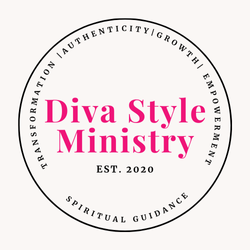A fantastic way to ensure that journaling works for you are to do it long term. Long-term journaling gives you more insight into your life. You’ll be able to look to the past, present, and even the future (sort of) to get answers.
Remember the principle I espouse on this blog – creating a new, positive habit takes 21 to 28 days of consistent action, and that also includes journaling.
Journaling is a powerful tool that empowers you to make positive, lasting changes in your life. But first, you must do it. And you need to do it for at least 21 to 28 days to make it a habit. Let’s review a few tips for making journaling part of your daily routine.
* Make It Easy – Don’t make it a huge deal, and it’ll be simpler and easier to create that habit. For example, it’s easier to use a notebook, paper, and a good pen than a computer or tablet for most people. You can have the book  in your bag or on your bedside table or wherever you plan to write in it.
in your bag or on your bedside table or wherever you plan to write in it.
* Choose a Time That Works for YOU – The best times to do it are the ones that work for you. Try writing in the early morning, first thing, or the last thing before you go to bed.
However, that doesn’t necessarily work for all people. If you know a better time, do it. For example, some people like journaling while on lunch at work in the park. It’s up to you.
* Get a Drink and Eat a Snack – You don’t want to have any excuses or extraneous thoughts while you’re writing in your journal. Make sure you’re fed and hydrated. It can be harder to let your thoughts and feelings flow if your stomach is growling loudly.
* Create (or find) a Comfortable, Safe, and Accessible Space – It’s easier  to get into your thoughts if you’re comfortable and not thinking about how bad your tailbone hurts or your wrist hurts. Some people like using a desk, some a comfortable easy chair, others their bed.
to get into your thoughts if you’re comfortable and not thinking about how bad your tailbone hurts or your wrist hurts. Some people like using a desk, some a comfortable easy chair, others their bed.
If you journal during the day, look for a reading room or public library that might offer you a quiet space for your activity. If we’re still dealing with the COVID-19 pandemic when you read this, make sure you’re in a safe location, and use your personal protective equipment.
* Combine It with Something Else You Enjoy Doing – If you enjoy cleaning the house, then reading in your clean house with the windows open and the breeze flowing in, why not journal at that moment?
breeze flowing in, why not journal at that moment?
If it’s a daily thing, add journaling to it, and it’ll create a habit fast. Journaling before bed could be the start of a relaxing, soothing routine that helps you to fall asleep faster.
You could even make journaling a reward or treat for accomplishing a project – like cleaning out and arranging a space dedicated to writing.
* Add Some Relaxing Music to Set the Mood – Now it’s true that some people prefer silence, so that’s fine if you do. But consider trying some music that doesn’t have words and that is relaxing, to help you gather your thoughts and say calm and focused.
* Use a Specific Type of Journal – For some people, using a style of journaling like bullet journaling, prayer journaling, project journaling, and more, works better since it defines some rules for entry. Check out this post for additional journaling ideas.
* Consider Using Journaling Prompts – You can find journaling prompts for any type of journal you want to use. Check out The Spiritually Authentic Woman Daily Checklist Course + Journal + Audio bundle on Teachable to use 7 simple, powerful daily questions / prompts to center your spirituality and take focused action every single day.
* Reward Yourself – When you have been diligent for a month writing in your journal, take some time to read what you wrote, then reward yourself for doing it. You might buy some colored pens or some scrapbooking materials so you can add some definition and interest to your journal.
To truly experience the full benefits of journaling, it needs to be done most days, which is why you need to find a way to incorporate journaling into your everyday life. The best way to accomplish this is to make it easy and turn it into a habit.





